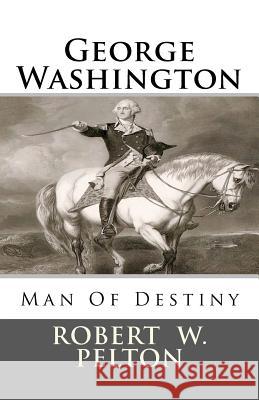George Washington Man of Destiny » książka
George Washington Man of Destiny
ISBN-13: 9781466481091 / Angielski / Miękka / 2012 / 308 str.
Few people realize that George Washington (1732 - 1799) was a man who formally attended school only to the elementary level. Yet, he went on to become Commander-in-Chief of the Continental Army in 1775, and served in this capacity until 1783. Washington first gained prominence leading troops from Virginia in support of the British Empire during the French and Indian War (1754-1763), a conflict which he inadvertently helped to start. After leading the American victory in the Revolutionary War, he relinquished his military power and returned to civilian life. This act alone brought him much renown. There was initially a question as to how the new leader was to be properly addressed. The Senate proposed that he be called "King" or as "His Highness the President of the United States and Protector of Their Liberties." Washington refused to consider either of these titles. As a result, the Senate and the House of Representatives, after much heated debate, compromised and agreed on the use of the much less pompous "President of the United States." After his second term expired, Washington again retired to civilian life. He thereby established an important precedent of peaceful change of government that was to serve as an example for the United States and for future Republics throughout the world. Because of his central role in the founding of the United States, Washington is often called the "Father of the Country." Scholars rank him among the greatest of United States presidents. A British Leader's Comment Yes, this is the man who was so highly honored by the great British statesman and four times Prime Minister, William Gladstone. Gladstone once proposed the creation of a grouping of pedestals for statues of history's greatest men. The pedestal in the center was noticeably higher that the others. Gladstone was asked to identify the figure to be given the place of honor on the highest pedestal. Without a moment's hesitation, he answered: "George Washington." President of the Constitutional Convention George Washington presided over the Constitutional Convention, during which time the Constitution was approved and adopted at the State house in Philadelphia on September 17, 1787. Only he, a moral, honorable and dignified man -- through personal example, committed leadership and force of character -- could hold the strong-willed, opinion-differing men together at the glorious Constitutional Convention. The destiny of a great nation lay upon the shoulders of this heroic leader. Hall of Heroes Inducted by Life Magazine in 1998 into its Hall of Heroes, these words most appropriately written by historian Garry Wills: "Washington is the greatest President, greatest leader, greatest politician. He steered a course through revolution and nation-building with immense tact and wisdom. Nobody else could have done it." Yes, George Washington is an American hero whose eminence is not fully covered by the record of his life. For example, the man was substantially greater than anything he did. He was a military genius, a mastermind. He wrenched freedom, independence and liberty from oppression; He was an outstanding statesman. He helped evolve a secure government from political turmoil; He was a patriot. He refused a crown. Wisdom and understanding, persistence, forbearance, bravery, dedication to the worthy cause animated his every act. Thanklessness, unfairness and disloyalty never disillusioned him, but served to reinforce and make his character stronger. He grew in dignity and in capability to the need of his mounting responsibility and authority. He never became pompous or disdainful. Personal aspirations and selfish opportunity never tempted him from the slender corridor of honor.
Zawartość książki może nie spełniać oczekiwań – reklamacje nie obejmują treści, która mogła nie być redakcyjnie ani merytorycznie opracowana.











